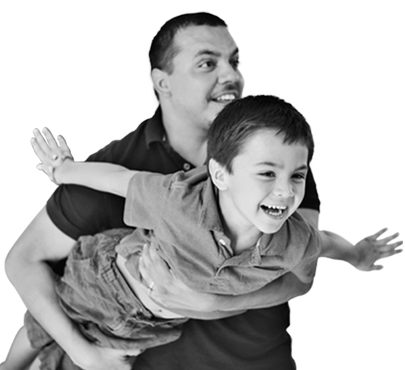Who Diagnoses Autism?

For many parents, the question of whether their child has autism can begin with learning what some of the most common signs are. Formal autism diagnosis, however, typically involves specific categories of qualified professionals who specialize in assessing and diagnosing developmental disorders. If you’re interested in understanding the ins-and-outs of evaluation and diagnosis, our blog, Evaluating and Diagnosing Autism covers this in detail.
Some of those involved in the process of identifying and diagnosing autism may include:
- Pediatrician or Family Doctor: A primary care physician may be the first point of contact for parents who have concerns about their child's development. Although they cannot conduct full evaluations or provide an official diagnosis of autism, they can provide initial screenings and referrals to specialists for further evaluation.
- Child Psychologist or Developmental Psychologist: These professionals specialize in assessing and diagnosing developmental disorders, including autism. They conduct comprehensive psychological evaluations, which may involve standardized tests, observations, and interviews with the child and their family.
- Child Psychiatrist: Psychiatrists are medical doctors with specialized training in mental health and developmental disorders. They can assess children for autism and other psychiatric conditions, and they may prescribe medications if necessary.
- Developmental Pediatrician: In addition to having knowledge of general pediatrics, developmental pediatricians also have specialized training in treating individuals with developmental delays and learning difficulties. They are typically able to diagnose autism as well as other developmental disabilities.
In addition to obtaining a diagnosis or autism, children typically benefit from other therapies and interventions that conduct their own specialized evaluations to better understand your child’s current skills levels and developmental needs. These may include the following:
- Speech Therapist: Communication difficulties are common in individuals with autism. Speech and language therapists assess language skills, social communication abilities, and speech development. They play a crucial role in evaluating and addressing communication challenges.
- Occupational Therapist: Occupational therapists evaluate a child's sensory processing, motor skills, and daily living abilities. They assess how autism affects a child's functioning and help develop strategies to improve independence and quality of life.
- Neurologist: In some cases, a neurologist may be involved to rule out other neurological conditions or to assess associated medical issues. They may conduct tests such as electroencephalography (EEG) or brain imaging to gather additional information.
- Behavior Analyst: Also known as a BCBA, a behavior analyst oversees ABA Therapy programs for children. Although BCBAs do not diagnose autism, they can play an important role in evaluating a child's current strengths and limitations as part of a comprehensive skills assessment.
- Special Education Teacher: Depending on the child's classroom setup, the special education teacher can provide valuable input into the child's learning style, interests and patterns of behavior.
It's important to note that diagnosing autism is a complex process that requires a comprehensive evaluation by professionals with expertise in developmental disorders. The specific professionals involved may vary depending on the family’s location, available resources, and the age of the individual being assessed. If you need help obtaining a diagnostic evaluation for your child, schedule an appointment with our Family Support Team for more information on how to get the process started.
AZA United's Family Support Team provides support and guidance for families facing any number of challenges as they navigate the Autism journey. This service is available at no charge to all members of the autism and developmental disability community. You may make a phone appointment that works with your schedule by visiting azaunited.org/supportcall
You may also be interested in:
For more helpful resources and information, follow AZA United on social media:






